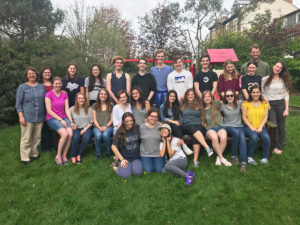Of all twenty films MARVEL Studios has released over the past ten years, the Guardians of the Galaxy films are two of my favorites. The 2014 original was a dark horse (who would’ve thought a trigger-happy anthropomorphic raccoon and a talking humanoid tree from space would be box office gold?), and both films have been funny, unexpectedly heartfelt, and wonderfully quirky.
The success of this franchise can be largely attributed to director James Gunn, who took this obscure band of misfit c-list characters and thrust them into the spotlight. Almost overnight the Guardians became a pop-culture sensation. It’s the kind of success upon which MARVEL Studios has built their brand, and the franchise (under Gunn’s direction) was poised to take a position of even more prominence after the fourth Avengers film.
That is, until something even more unexpected happened.
On July 20th, 2018 my phone’s newsfeed was overwhelmed by a flood of articles with titles to the effect of “James Gunn Fired from Guardians of the Galaxy Vol. 3 by Disney.” Confused, I opened the first article and began to read. In short, Gunn was fired after a series of old tweets from 2008 to 2011 resurfaced online. These tweets were full of dark, shocking attempts at humor from a time in Gunn’s career where he viewed himself as a provocateur, joking about taboo subjects specifically to provoke a reaction. I’ve read the tweets, and while I won’t go into detail the content is truly disgusting: a kind of shock humor that appeals only to a small, niche audience.
 That said, Gunn made these comments ten years ago. Since then he has addressed them several times and affirmed that he has moved past that stage in his comedy and in his life. And yet, Disney fired him, declaring that “the offensive attitudes and statements discovered on James’ Twitter feed are indefensible and inconsistent with our studio’s values”—never mind that they hired him in 2012, just a few years after the tweets in question were published.
That said, Gunn made these comments ten years ago. Since then he has addressed them several times and affirmed that he has moved past that stage in his comedy and in his life. And yet, Disney fired him, declaring that “the offensive attitudes and statements discovered on James’ Twitter feed are indefensible and inconsistent with our studio’s values”—never mind that they hired him in 2012, just a few years after the tweets in question were published.
As an aspiring filmmaker and writer, I found Gunn’s firing distressing. It sets a terrifying precedent: if Gunn can be fired for tweets made 10 years ago—which he has since apologized for and moved past—what happens when the next generation of aspiring filmmakers are shot down because they said something immature and offensive on Instagram while in High School or College? Is it now acceptable to fire someone within twenty-four hours of a similar discovery, without a proper investigation, or even time for the dust to settle? Can and should a creator be fired over something unrelated to a project they are working on? It’s still too early to know for sure, but Disney’s decision to sever ties with Gunn has set us on a concerning trajectory for the future of the film industry.
There is a bitter irony to this. At its core, Guardians of the Galaxy is a story of redemption and growth. Yet its director was fired for actions he took ten years ago, before he was even in talks to direct the first film. It’s a response that undermines the central tenant of the franchise: that we can be better than we were before. But you need an opportunity to be better, an opportunity that James Gunn was making the most of before it was pulled out from under him.
Caleb is a sophomore majoring in writing and communication.

 It is for this reason that one of the Houghton Honors programs has chosen this city in which to study the development of Western Society. It is one of the only places on earth that so much history can be viewed in such proximity and ease, and this makes it ideal for the kind of program that is Honors in London.
It is for this reason that one of the Houghton Honors programs has chosen this city in which to study the development of Western Society. It is one of the only places on earth that so much history can be viewed in such proximity and ease, and this makes it ideal for the kind of program that is Honors in London.